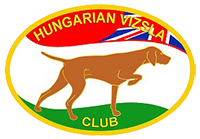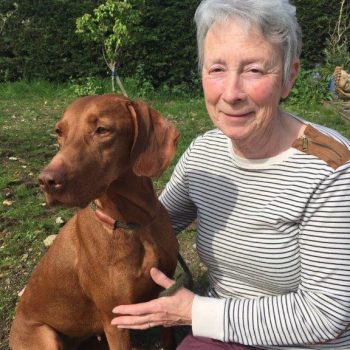THE KENNEL CLUB
RE: Gonioscopy Breeding Advice
We are writing to you as your breed is on either Schedule A or B of the BVA/KC/ISDS Eye Scheme for primary closed angle glaucoma (PCAG).
As you are aware, a gonioscopy pilot study grading project was initiated on 1st July 2017. This letter provides information relating to upcoming changes to the way gonioscopy results are recorded by the Kennel Club.
Why was this pilot study initiated under the BVA/KC/ISDS Eye Scheme?
The designation of ‘clinically unaffected’ or ‘clinically affected’ as specified for gonioscopy (G) on the current Certificate of Eye Examination provides only two options and gives no indication of the range of appearances that may be encountered;
· The Eye Panel Working Party (EPWP) has devised a simple grading system, based in part on the existing literature, which reflects more accurately what the Panellist observes;
· Grading will provide owners and breeders with a greater level of information about the extent of any goniodysgenesis, especially the extent of pectinate ligament abnormality (PLA) / dysplasia (PLD) as a proxy for the risk of glaucoma developing in later life;
· Grading will help to inform breeding decisions, particularly when maintaining genetic diversity is of concern. Breed Health Coordinators will play a key role in providing breeding advice once the required information is available
The pilot study is being updated, with effect from 1st January 2018.
Why is the pilot study being updated?
· Whereas recording gonioscopy as either ‘Clinically affected’ or ‘Clinically Unaffected’ is a binary choice, the grading of PLA utilises a continuous scale and so grading can clearly be regarded as more helpful when deciding the breeding strategy to adopt.
· At the start of the Pilot Study Grading Project on July 1st 2017 there was no means of recording grades on the Kennel Club (KC) database, so both the ‘Clinically Unaffected’ and ‘Clinically affected’ results were retained as an interim measure to run in parallel with the new grading system;
· This dual recording was recognised as a compromise and, prior to making hardwired changes to the KC registration system, the KC has now introduced changes that enable grades to be recorded.
What are the implications of these changes?
· Results prior to the introduction of the Pilot Study Grading Project will be recorded as ‘G’ either ‘Unaffected’ or ‘affected’;
· Results from 1st July 2017 onwards will be recorded as PLA grades (0, 1, 2, 3) if grades were assigned.
What is the Kennel Club doing to facilitate these changes?
· Dogs which have undergone gonioscopy since the pilot study began on 1st July 2017 will have their ‘G’ ‘UNAFFECTED’ or ‘AFFECTED’ result removed
· In place of the former result, a PLA grade (0,1,2,3) will be added to their record
· These changes will be being made in the next few weeks; it is hoped that they will be complete by 1st January 2018
· Any new results received from 1st January 2018 onwards will have the PLA grade (0,1,2,3) recorded
The BVA/KC/ISDS Eye Examination Certificate has been updated, in part to allow recording of PLA grades more easily. You will see on the revised Certificate that dogs receive a right and left eye PLA grade, and an overall result which is the higher of the two grades should there be any disparity between the two eyes. There will be an interim period during which both the old Certificate of Eye Examination and new Eye Examination Certificate are in use. Guidance for panellists has been sent out by the BVA which advises that those using the old Certificate of Eye Examination should draw a horizontal line through the two tick boxes for (G) Goniodysgenesis and then record right grade, left grade and result immediately next (G) Goniodysgenesis.
Updated information relating to primary glaucoma and the pilot study grading project will be available on the BVA and Kennel Club websites soon, along with an updated version of the ‘Hereditary eye disease in dogs’ booklet. We have also prepared a simple ‘Gonioscopy breeding advice’ document, which we send with this letter and which will be available on our website soon.
We would be grateful if you could assist with distributing this communication widely in your breed to breeders who may be undertaking gonioscopy. If you have any queries relating to this letter, please contact
mateselect@thekennelclub.org.uk.
Very best wishes for Christmas and the New Year
Kind regards
The Health Team
The Kennel Club
Clarges Street, Piccadilly, London W1J 8AB

